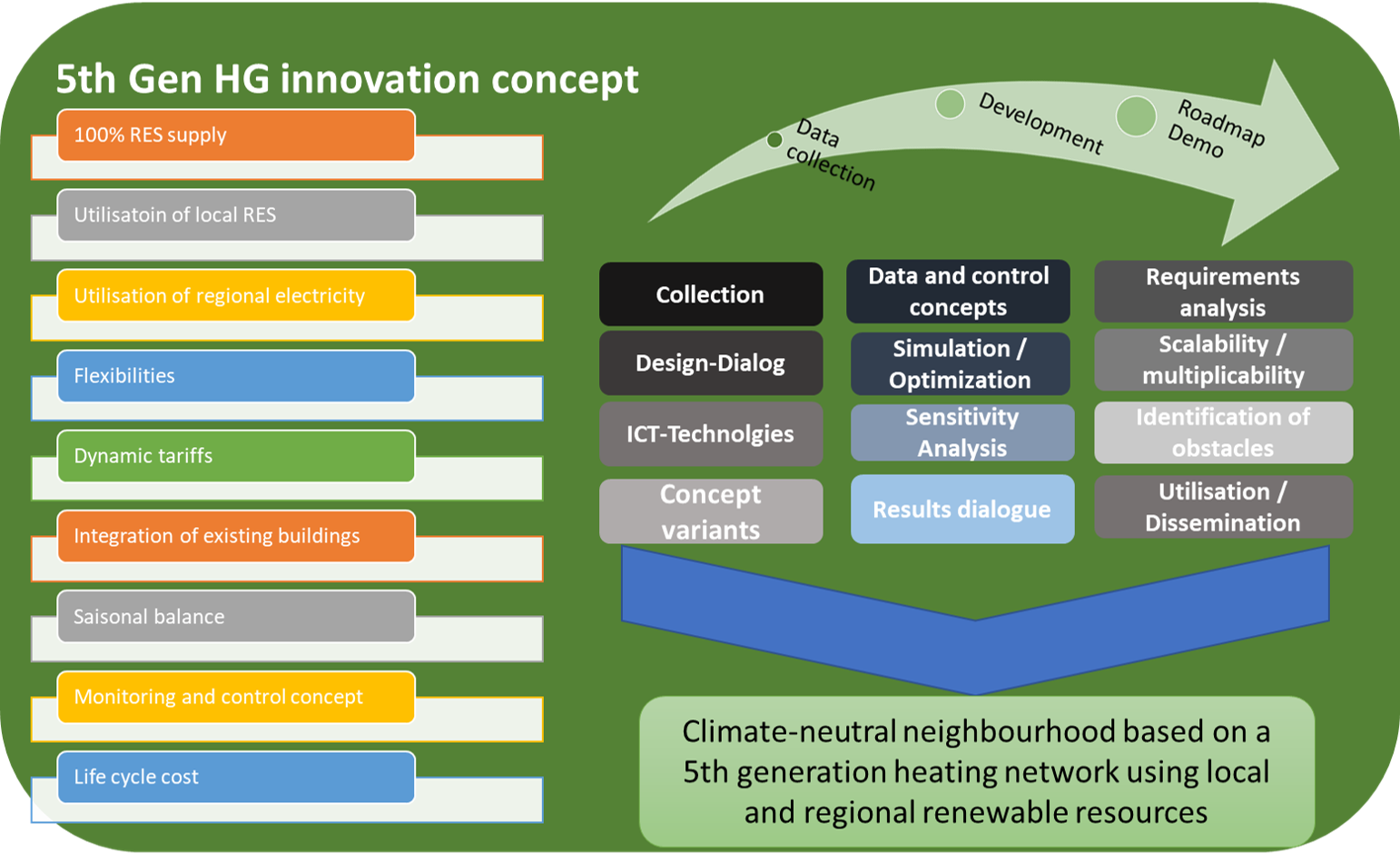5th Gen HG - 5th Generation Heating Grid Neutal
Short Description
Starting point / motivation
The municipality of Neutal has been working on a sustainable, climate-friendly energy solution for its municipal buildings and facilities for some time now. In recent years, various PV systems have been installed on public buildings and some decentralised battery storage systems have been implemented as day/night balancing for the PV systems. The municipality of Neutal has founded a renewable energy community to enable the exchange of generated electricity between the public buildings.
This is intended to further increase the level of self-sufficiency in the municipality of Neutal. The municipality of Neutal also includes a so-called technology area with a technology centre in central Burgenland, which is home to various medium-sized businesses and industrial companies.
Contents and goals
The aim is to develop a concept based entirely on renewable electricity and heat for the municipality of Neutal, including the neighbouring technology area, with the following features:
- 5th generation heating network as the central backbone of energy logistics
- Consideration of the high mix of uses
- High proportion of locally generated renewable electricity
- Strategic use of regionally generated renewable electricity
- Involvement of local stakeholders
- Development of an economic investment, tariff and optimisation concept for the project
Methods
Methodologically, the project is divided into three phases. In the data collection phase, relevant energy data and stakeholder requirements are collected. These are compared with applicable ICT technologies and lead to the creation of basic concept variants.
The development phase comprises the creation of data flow and control concepts for the individual variants and their techno-economic simulation and optimisation. Sensitivity analyses are used to identify the key factors, and a dialogue on the results with the stakeholders leads to the selection of a final variant.
The roadmap development represents the third phase of the project. Here, the course is set for a demo project by analysing the requirements for implementation. The scalability and multipliability of the developed concepts will also be analysed.
Expected results
The following concrete results of the project are planned:
- Creation of four concept variants for further analysis
- Creation of data flow and control concepts for these four concept variants
- Based on these results and initial rough analysis, selection of two variants for detailed analysis and optimisation
- Carrying out two waves of participation (elicitation of requirements and reflection on the concepts), Development of a roadmap for the implementation of the final concept
- Creation of a roadmap for the implementation of the climate-neutral neighbourhood
Project Partners
Project management
Forschung Burgenland GmbH
Project or cooperation partners
- Woschitz Engineering GmbH
- Siemens AG
Contact Address
Markus Puchegger
Tel.: +43 (664) 161 66 56
E-mail: Markus.puchegger@forschung-burgenland.at
Web: www.forschung-burgenland.at

